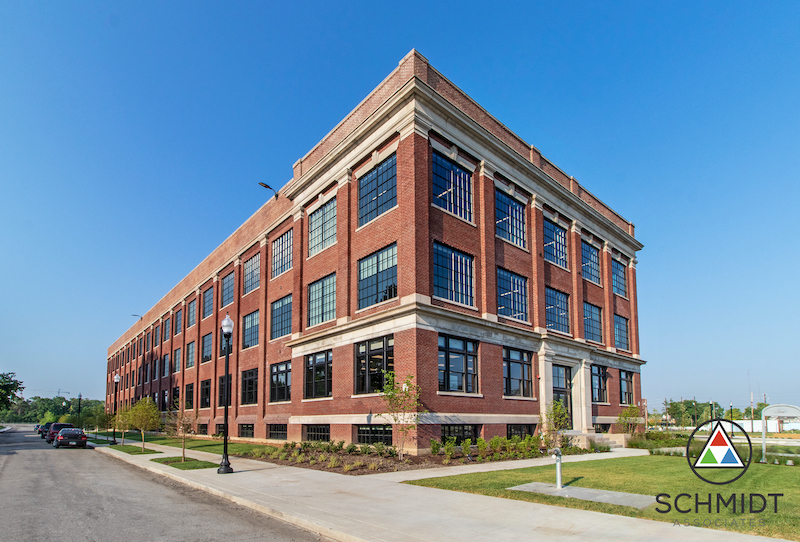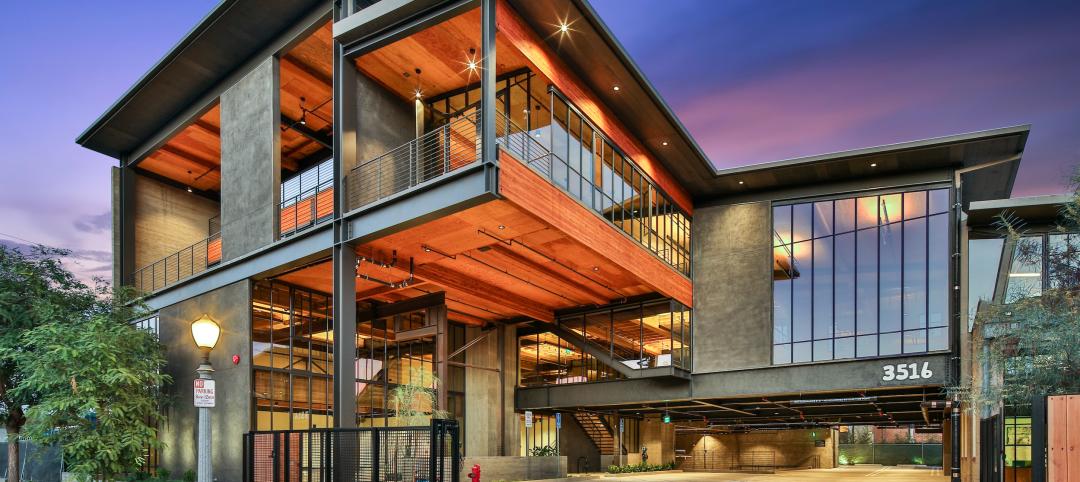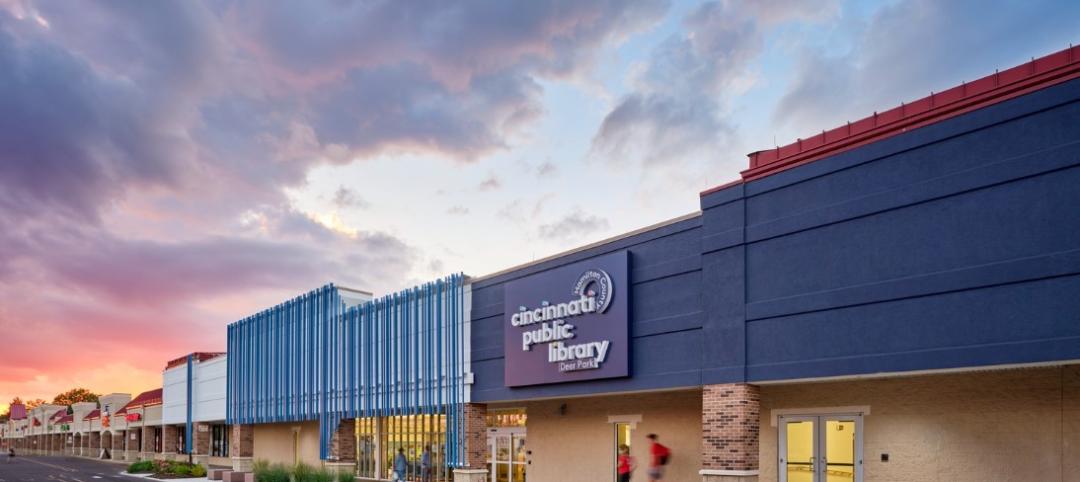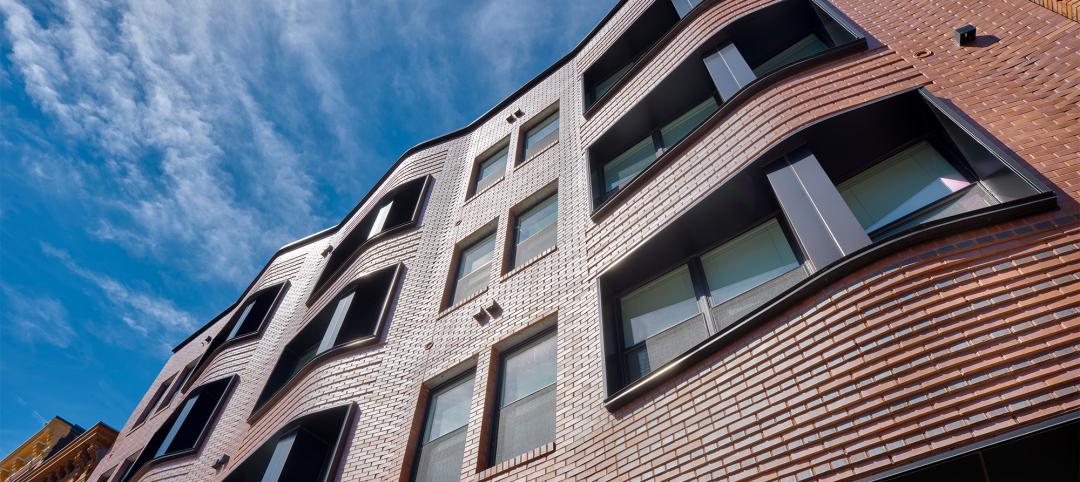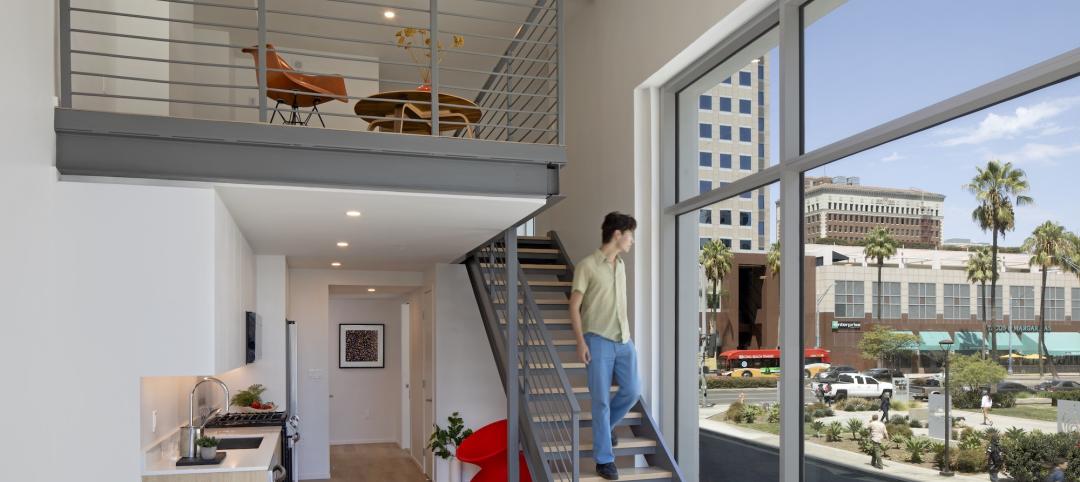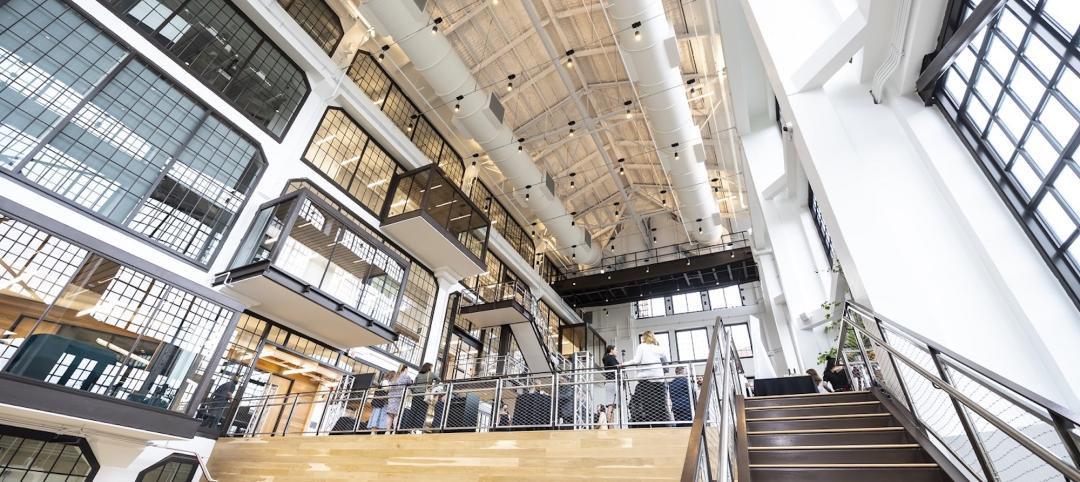The P.R. Mallory Building in Indianapolis was once where the Duracell battery was invented and patented. Vacant for decades, the 100-year-old building has been jolted back to life through an adaptive reuse project that converted the facility into new homes for the STEM-focused public charter school Purdue Polytechnic High School and Paramount Englewood Middle School.
The building team—AE firm Schmidt Associates, Brandt Construction, and landscape designer Anderson + Bohlander—was instrumental in helping Englewood Community Development and John Boner Neighborhood Centers, the building’s owners since 2018, to realize their vision.
“We were able to help the owners take something old and dilapidated, and turn it into something new and innovative that will improve lives long into the future,” says Lisa Gomperts, FAIA, LEED AP, Principal and Project Manager with Schmidt Associates.
REUSE DESIGN COMPLICATED BY NATIONAL REGISTRY

A before-and-after look at one of the building's areas. Large floor plates gave the design team lots of room for their ideas.
Adaptive reuse and historic preservation are among Schmidt’s specialties. For example, last year the firm converted an abandoned 62,000-sf strip mall in Shelbyville, Ind., into Golden Bear Preschool, a $13 million project that encompasses a SENSES gym for children with special needs, 15 classrooms, a cafeteria, and outdoor play area. The school’s administrative office is located inside what had been a bank at the end of the shopping center.
The Indianapolis schools, which opened last week, are contained within 114,256 sf over four floors. The project’s total cost was $38 million, of which $23.4 million was construction.
Click here to see an architectural tour of the building
The adaptive reuse presented some challenges. During the design phase, the owners initiated the process of putting the building on the National Register of Historic Places, which meant that any proposed designs needed approval from the National Parks Service, the Indiana Department of Natural Resources, and the city.
It took 23 months to get the building’s 206 historically accurate windows approved. The building itself also had an undocumented tunnel system that had to be filled in. And because that had once been a battery plant, environmental remediation was a given to make the space safe for students and faculty.
The building’s original wood columns and ceilings were stripped and restored, and other original elements were retained such as a catwalk and roof monitors, steel doors of the elevator and vaults, and the factory’s smokestack for future renovation. The original terrazzo tile that adorned the building’s north entryway was restored.
Also see: Hastings Architecture creates its new HQ from a former Nashville public library building
ARCHITECT HAD LOTS OF SPACE TO WORK WITH
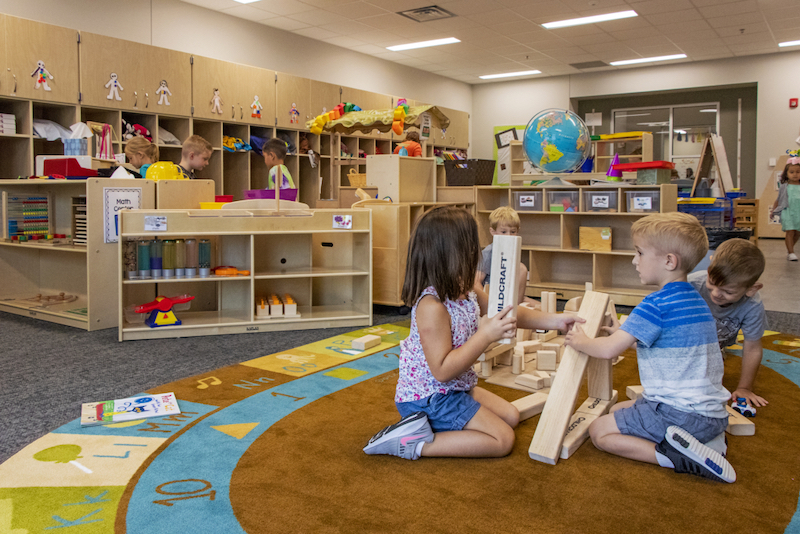
Another of Schmidt Associates' adaptive reuse projects is Golden Bear Preschool, inside what once was a shopping mall in Shelbyville, Ind.
The nontraditional curricula of the educational tenants, and their relationship, drove the reuse design. The two institutions will be integrated with each other and Purdue University; for example, a middle-school student would receive priority admittance to Purdue Polytechnic, whose students receive direct admittance upon graduation to Purdue University.
The building has 56 classrooms: 31 for the high school including labs and a career readiness center; and 25 for the middle school.
The building’s expansive floor plates gave Schmidt an ample canvas for its design ideas. The building now features collaborative study lounges whose furniture can be broken down into pods; clean and dirty maker spaces; flexible classrooms with garage doors that open up or section off spaces as needed; and communal outdoor gathering areas. There is also a high level of technological integration between the schools.
Related Stories
Sustainability | May 11, 2023
Let's build toward a circular economy
Eric Corey Freed, Director of Sustainability, CannonDesign, discusses the values of well-designed, regenerative buildings.
Office Buildings | May 4, 2023
In Southern California, a former industrial zone continues to revitalize with an award-winning office property
In Culver City, Calif., Del Amo Construction, a construction company based in Southern California, has completed the adaptive reuse of 3516 Schaefer St, a new office property. 3516 Schaefer is located in Culver City’s redeveloped Hayden Tract neighborhood, a former industrial zone that has become a technology and corporate hub.
Libraries | Mar 26, 2023
An abandoned T.J. Maxx is transformed into a new public library in Cincinnati
What was once an abandoned T.J. Maxx store in a shopping center is now a vibrant, inviting public library. The Cincinnati & Hamilton County Public Library (CHPL) has transformed the ghost store into the new Deer Park Library, designed by GBBN.
Affordable Housing | Mar 8, 2023
7 affordable housing developments built near historic districts, community ties
While some new multifamily developments strive for modernity, others choose to retain historic aesthetics.
Adaptive Reuse | Mar 5, 2023
Pittsburgh offers funds for office-to-residential conversions
The City of Pittsburgh’s redevelopment agency is accepting applications for funding from developers on projects to convert office buildings into affordable housing. The city’s goals are to improve downtown vitality, make better use of underutilized and vacant commercial office space, and alleviate a housing shortage.
Giants 400 | Feb 6, 2023
2022 Reconstruction Sector Giants: Top architecture, engineering, and construction firms in the U.S. building reconstruction and renovation sector
Gensler, Stantec, IPS, Alfa Tech, STO Building Group, and Turner Construction top BD+C's rankings of the nation's largest reconstruction sector architecture, engineering, and construction firms, as reported in the 2022 Giants 400 Report.
Multifamily Housing | Jan 23, 2023
Long Beach, Calif., office tower converted to market rate multifamily housing
A project to convert an underperforming mid-century office tower in Long Beach, Calif., created badly needed market rate housing with a significantly lowered carbon footprint. The adaptive reuse project, composed of 203,177 sf including parking, created 106 apartment units out of a Class B office building that had been vacant for about 10 years.
Adaptive Reuse | Jan 12, 2023
Invest in existing buildings for your university
According to Nick Sillies of GBBN, students are increasingly asking: "How sustainable is your institution?" Reusing existing buildings may help answer that.
Government Buildings | Jan 9, 2023
Blackstone, Starwood among real estate giants urging President Biden to repurpose unused federal office space for housing
The Real Estate Roundtable, a group including major real estate firms such as Brookfield Properties, Blackstone, Empire State Realty Trust, Starwood Capital, as well as multiple major banks and CRE professional organizations, recently sent a letter to President Joe Biden on the implications of remote work within the federal government.
Adaptive Reuse | Dec 21, 2022
University of Pittsburgh reinvents century-old Model-T building as a life sciences research facility
After opening earlier this year, The Assembly recently achieved LEED Gold certification, aligning with the school’s and community’s larger sustainability efforts.


